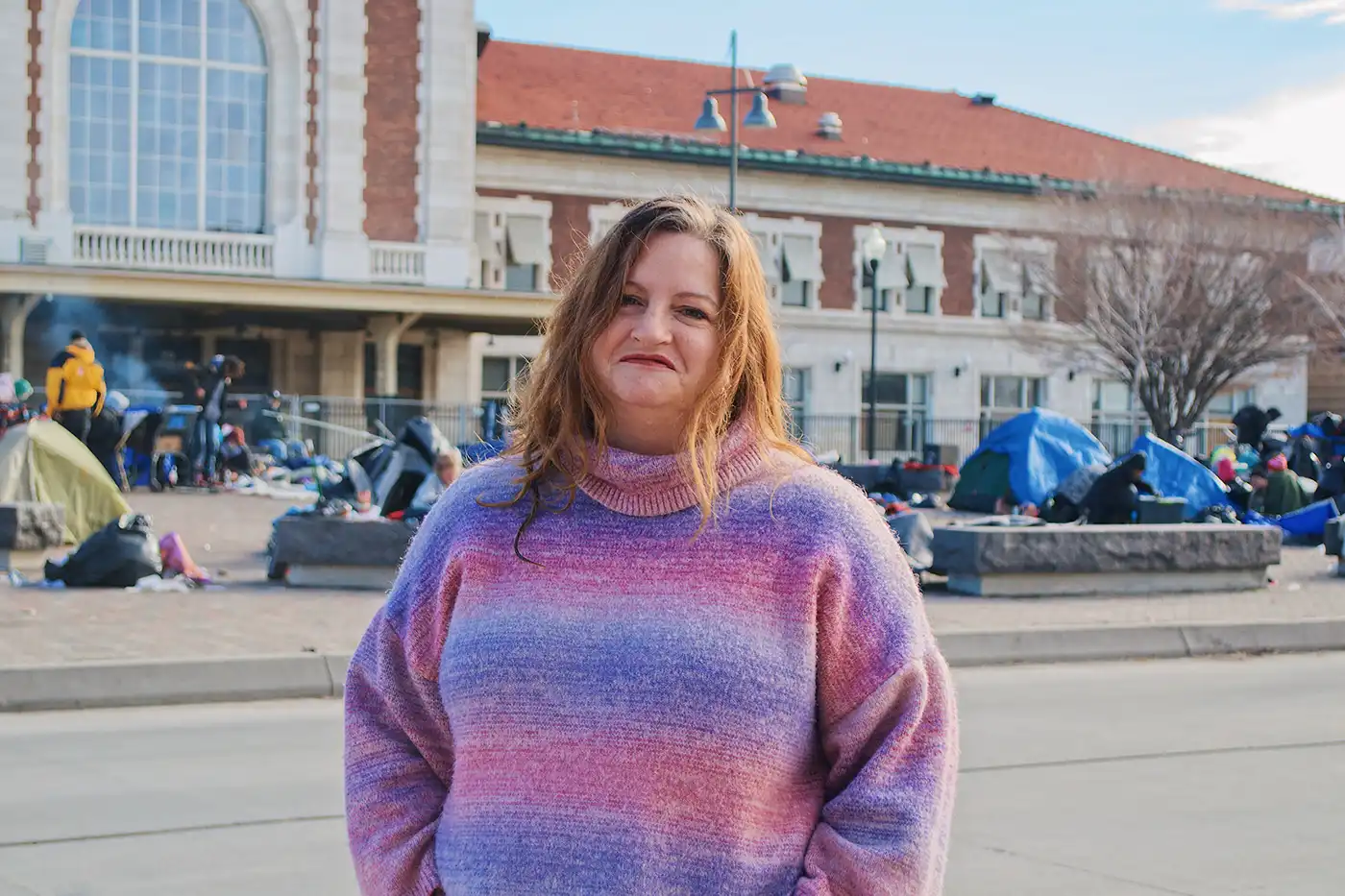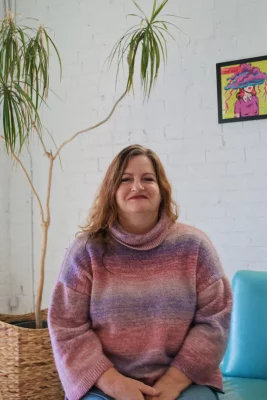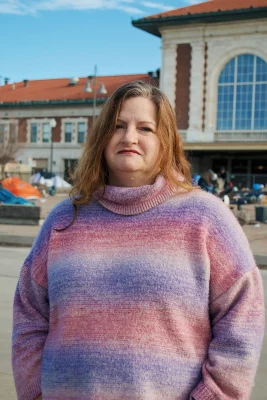
Unsheltered Utah: Surviving the Moratorium
Activism, Outreach and Education
Wendy Garvin is the executive director of Unsheltered Utah. Garvin humbly claims that Unsheltered Utah happened by chance. She has always been a fervent advocate for the unhoused folks in our city, so it’s no surprise she is leading the charge to help those who need shelter.

Garvin used to work as the receptionist at a local community center. “We had ramen and coffee set out. [Some] unsheltered people became regulars,” she says. “They were always polite and followed all the rules, but my bosses didn’t like them. They told me I had to kick them out, and I didn’t. I came to work at a community center where they wanted to kick the community out, and that didn’t sit well with me.” Garvin was laid off during the COVID-19 pandemic and was happy to leave. She then organized a few dinners at Camp Last Hope. “I posted on social media and people started to show up. After a couple thousand dollars in donations, I decided to start a 501(c)(3)—in a way, it happened to us,” says Garvin.
Garvin has implemented three programs with Unsheltered Utah. First is the outreach program, where “we go to the camps and give out as much survival gear and hot meals as we can,” she says. Second is a housing sponsorship program. Due to recently received funds, Unsheltered Utah can put four families into motels. Federally funded programs have strict requirements that folks receiving the help have to meet. As a privately funded group, Unsheltered Utah can help broader groups of people. The housing sponsorship program is a great intermediary step for people to get into a government funded program. The third Unsheltered Utah program is Movie Night, which is hosted at the First United Methodist church on 2nd South and 2nd East when the weather dips below 20° Fahrenheit. They will play movies all night and provide those who need shelter protection from hazardous conditions.
“Healthcare is not easy for unsheltered people to access.”
Movie Night is a special program in that it’s an intentional obfuscation of the City’s protocol. Garvin elaborates, “We cannot call it a shelter due to Salt Lake City Mayor Erin Mendenhall’s moratorium on shelters, so it’s a ‘movie night.’ The church’s protective status also means that people cannot go in and make sure that people are not sleeping during the movies that are played.” Since the church is not zoned for habitation, it would technically be deemed bureaucratically inappropriate for people to use the Movie Night as a place to sleep. The church’s protective status plays a pivotal role in extending protection to those who need it most.
Garvin is writing a bill called Code Blue, sponsored by State Representative Steve Eliason, that would formalize Movie Night into a state-funded program. “This bill would cover weather situations (temperature dropping below a threshold or high levels of precipitation) and allow buildings to participate in Movie Night and open up during extreme conditions to provide safety for the people in need,” says Garvin. A seemingly simple solution for shelter during nasty storms are buildings. This bill would create funding such that “we could send four–five people out to train volunteers and help run the program for places who want to participate,” Garvin says.
Across Movie Night’s history, Unsheltered Utah has seen terrible cases of frostbite, trench foot and broken bones, heightening the need for shelter and protection from the elements. “Healthcare is not easy for unsheltered people to access,” says Garvin. From the healthcare system not taking their needs seriously to the amount of travel it takes to get to medical facilities, receiving care as an unsheltered individual is a risk in and of itself.
Trekking to a healthcare facility may require the need for public transportation, and when you have no money this can cause trouble. “We call them ‘homeless crimes.’ Often, they will have charges like trespassing, shoplifting or using TRAX,” says Garvin. “Theft of services—using TRAX without payment—can be charged as a felony.” Beyond these consequences, leaving a camp or personal items unattended to receive medical treatment can have dismal outcomes. Having your camp dismantled and stolen can hugely impact safety and thereby survival. Camps are often destroyed by the city—these are called abatements.
“We are all mostly two paychecks away from being homeless; It could happen to any of us at any time. If I ended up on the street two paychecks from now, I would not be a criminal, I would not be an addict. I would be exactly who I am.”

Abatements, “which are illegal in Idaho and California,” says Garvin, “result in the demolition of the encampments which these people reside in.” This means the destruction of private property, specifically items used for survival such as tents, sleeping bags and clothes. The complicated system that allows for this destruction of property took years for Garvin to fully understand. “The City alerts the Utah Health Department of the location of the encampment, who are obligated to report unsafe conditions to the Salt Lake City Police Department, who are obligated to carry [the abatement] out.” This means bulldozing the shelters these folks have created to survive.
A common question from the unhoused population is “Where should we go?,” often asked with no answer received. “I have been asking to meet with Erin Mendenhall for two years to talk about these abatements as well as the shelter moratorium, and she will not meet with me,” says Garvin. Seemingly, the pressure Mendenhall is under from local business leaders overshadows the need to lift the moratorium on shelters or end abatements in Salt Lake City.
It’s important to note that Unsheltered Utah is not the answer to ending homelessness. Garvin reminds us that “the major goal is to keep people alive until they find housing and assist in securing housing.” Remembering that homelessness is a complicated issue wrought with misconceptions can help humanize the issue in our city. “We are all mostly two paychecks away from being homeless; It could happen to any of us at any time. If I ended up on the street two paychecks from now, I would not be a criminal, I would not be an addict. I would be exactly who I am,” says Garvin. And so would you.
To get involved, join @UnshelteredUtah on Facebook and Instagram. Monetary donations are preferred, and socks and underwear are needed to battle frostbite.
Read more about issues facing our community:
Carl Moore is Protecting the Future Of Our Global Family
Rooted in Resilience: Farmers Take Center Stage at Annual Farm and Food Conference